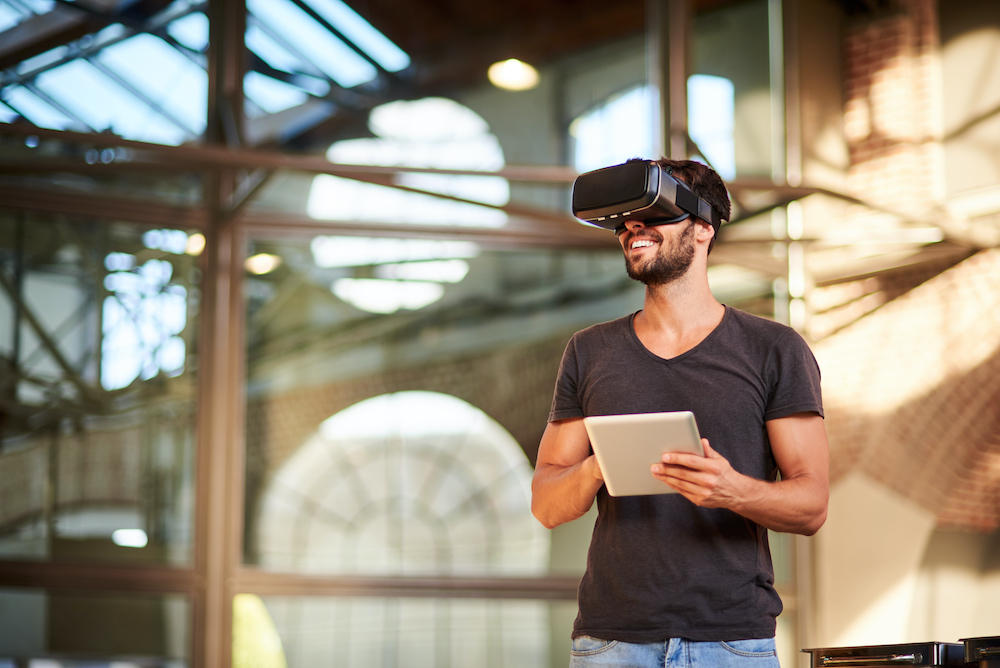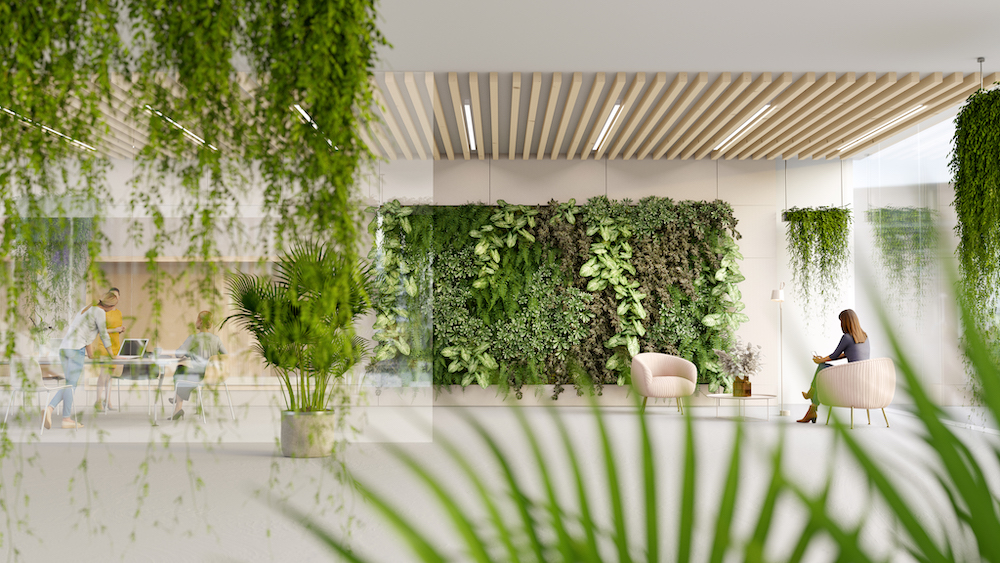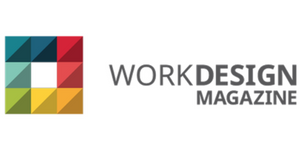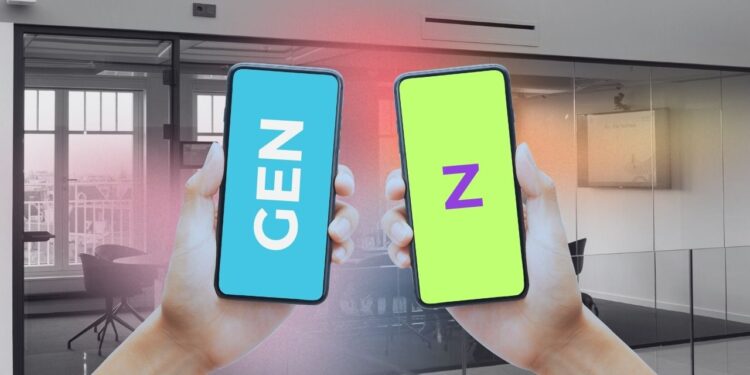- The office for Gen Z and junior employees isn’t just a workspace, but also a hub for socializing, skill acquisition, mentorship, and integration into a professional community.
- Office design can cater to this generation’s various needs through adaptable spaces for meetings and training, inclusive experiential areas, and social centers for community building.
- It is imperative for leading organizations to meet the call of Gen Z and embrace workspaces that are inclusive, tech-enabled and responsible.
This article was written by JLL’s Sanjay Rishi for Work Design Magazine.
Leading companies have long thought of their workplace as a consumer product, ready to be personalized and configured for each individual’s needs. That positioning has only become more important in a post-pandemic world, where hybrid work has extended the workplace beyond the four walls of the office and into any Wi-Fi-enabled home, coffee shop or flexible office space.
And now along comes Gen Z, the first generation of digital natives. Born between the mid-1990s and early 2010s and projected to comprise nearly one-third of the global workforce by 2030, this 2.5 billion-person generation will undoubtedly bring their own distinct characteristics, values and preferences to the workplace, upending yesterday’s norms.
Gen Z is more diverse than other generations. They also tend to be more risk averse and were harder hit by the pandemic, much as Millennials were most affected by the financial crisis of 2008. The isolation of remote work and lack of strong social ties has molded Gen Z into office advocates — provided their digital-first needs are met.

The Significance of the Workplace for Gen Z
Unlike their millennial counterparts, 20% of Gen Z workers began their careers during the COVID-19 pandemic and entered the workforce without stepping foot into a physical office location. Yet, contrary to popular perception, many younger employees who have only worked remotely recognize they are missing out on key advantages of working in the office, from mentoring to building friendships in the workplace — friends who can make the workday more enjoyable and create culture and community.
Recognizing the importance of work-life balance, Gen Z also desires flexibility in the workplace. While having an office to go to is important, Gen Z workers also value remote work options and flexible hours that accommodate personal needs without compromising productivity. Nearly three-quarters of Gen Z workers want a remote work option, according to JLL’s Global Workforce Preferences Barometer 2022 — even when they also want the option of coming to the office.
The post-pandemic workplace has morphed into a dynamic ecosystem of multiple workspace locations for each person, each one carrying the potential to embody the aspirations and expectations of multiple generations. For Gen Z and other junior employees, in particular, the office isn’t just a place to work — it’s a place for socializing, in-person learning to gain invaluable skills, benefit from mentoring and become part of a professional community.
Office design can support these needs with flexible spaces for in-person training and group meetings, experiential spaces to draw in people of all generations, and social hubs to foster conversation and community, all supported by thoughtful policies.

Changing Workplace Expectations
For employees of all generations including Gen Z, the workplace continues to play a central role in talent recruitment, retention and engagement. It is imperative for leading organizations to meet the call of Gen Z and embrace workspaces that are inclusive, tech-enabled and responsible — creating spaces that embrace experimentation and give opportunities to benefit from emerging tech like AI, AR and VR in the new world of work. As demonstrated in JLL’s ongoing workplace and employee research, what employees value and desire from the corporate workplace has changed dramatically in recent years.
According to World Economic Forum research, Gen Z workers have high expectations for work-life balance, a sense of community, and career progression. Learning and development opportunities, health and wellbeing support, quality of office environment, and diversity and inclusion are all important.
Having experienced a pandemic and a volatile economy, Gen Z workers value financial stability and are masters of the “side hustle” to earn additional income. However, Gen Z also expects work to provide meaning in their lives and to be aligned with their personal values.
Nearly 80% of Gen Z workers say it is vital to work for a company whose values align with their own, according to research from Deloitte and the Network of Executive Women (NEW). As Deloitte noted, Gen Z considers potential employers not only on the value of their products and services, on the basis of their ethics, practices and social impact.

Gen Z’s Vision for an Inclusive and Sustainable Workplace
As the most diverse generation in history, it’s not surprising that Gen Z seeks a more equitable professional landscape in which diversity and inclusion matter. In a recent Monster survey, 83% of Gen Z job candidates said that a company’s commitment to diversity and inclusion is important when choosing an employer.
Climate change and environmental sustainability are also top concerns for Gen Z workers. Nearly 40% of Gen Z workers are very or extremely engaged in environmental concerns, according to the Deloitte-NEW research. It’s no surprise that Gen Z prefers employers that occupy energy-efficient, carbon net-zero and sustainable buildings that are fully supported by green and sustainable infrastructure.
Many companies are already striving to meet Gen Z ideals. For example, JLL’s Future of Work 2022 research shows that nearly half (46%) of organizations aim to accelerate investments in diversity and inclusion in all aspects of the workplace by 2025.
JLL’s research shows that many companies are working steadily toward meeting net-zero carbon emissions targets by 2025. Strategies include choosing facilities with sustainability certifications, adopting sustainable facility management operations, embedding net-zero carbon requirements into site-selection processes, embracing circular design principles and exiting less carbon-efficient spaces.

Investing in Workplace Technology
Having grown up in the digital age, Gen Z seamlessly integrates technology into their work processes. This is, after all, the generation that came of age with gaming, coding and digital-first experiences. Companies looking to attract younger workers will need to invest in workplace technologies and workplace policies that enhance collaboration, flexibility, productivity and communication — and are equal to, or superior to, the technologies that employees use in their personal lives.
Forward-looking organizations are investing significantly in workplace technologies to improve the employee experience. For example, multi-functional workplace experience apps streamline everyday tasks, such as booking workspaces, meeting spaces and accessing on-demand workplace services. Today’s technology makes it easier to ensure that teams are in the office at the same time, seated near one another and able to easily collaborate. Immersive technologies will bring new levels of virtual collaboration to the workplace and help remote and onsite workers of all ages feel equally connected and supported, no matter where they’re working.
Shaping the Future Workplace
In a world increasingly driven by hybrid work, organizations have an opportunity to shape the workplace of the future to meet the needs of young workers and the needs of other generations. As organizations navigate the changing landscape, it is vital to recognize the value that Gen Z brings to the workplace and how their generation’s unique outlook will help shape the workplace of the future.


















